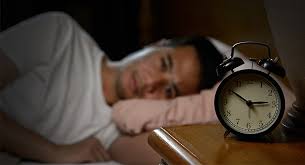Every man that is looking to improve their life should consider hormone therapy. However, even men who don’t know they have a problem may need help with hormone therapy. In this article, learn about the benefits of hormone therapy for men and how it can help you achieve your body goals.
Introduction to Hormone Therapy For Men
Hormone therapy is a type of treatment that uses hormones to treat conditions such as hormone replacement therapy (HRT), diabetes, and acne. This therapy can replace hormones that are not being produced in the body or help correct conditions caused by imbalances in hormone levels.
There are many hormones, each having specific effects on the body. HRT is used to replace hormones that are not being produced by the body, and it is usually prescribed to women after they have finished having children. HRT can help reduce symptoms associated with menopause, such as hot flashes and anxiety.
Hormone therapy can also be used to treat conditions caused by imbalances in hormone levels. For example, diabetes is caused when the body does not produce enough insulin or when the insulin that is produced does not work correctly. Hormone therapy can help improve blood sugar levels and prevent long-term damage to the pancreas. Hormone therapy can also treat conditions such as acne and prostate cancer. By correcting these conditions with hormone therapy, patients often see a marked improvement in their symptoms.
What Body Parts are Affected by Hormone Therapy for Men?
Hormone therapy is used to help manage conditions such as hormone imbalance, sex hormone deficiency, and primary hypogonadism. Hormone therapy can be used to treat both men and women.
Below are the body parts that are most commonly affected by hormone therapy:
The pituitary gland is located in the brain and produces hormones like testosterone. Testosterone helps regulate many body processes, including energy levels and mood. Testosterone can also play a role in sexual function. If the pituitary gland does not produce enough testosterone, hormone therapy can help restore balance.
The testes are two small glands located below the bladder in men. The testes produce spermatozoa which fertilize an egg to create a child. Low levels of testosterone can lead to infertility. Testosterone therapy may also improve symptoms associated with low testosterone, such as loss of muscle mass, decreased libido, and increased aggression.
Ovaries are two small glands located near the uterus in women. They produce eggs which are necessary for reproduction. Too low or too high estrogen levels can lead to problems such as menstrual irregularities, weight gain, and breast cancer. Hormone therapy may help restore balance by increasing estrogen levels or reducing too-high ones. To know more about this therapy, talk to your doctor.
How are Hormones and Your Behaviour Connected?
There are a variety of hormones that play a role in human behavior. Some hormones impact mood, energy, appetite, and sleep, while others control the production of sperm or fat cells. All hormones can have an impact on your behavior.
The most well-known hormone that has an impact on human behavior is testosterone. Testosterone is responsible for developing masculine characteristics such as strength and libido. Low levels of testosterone can lead to symptoms such as fatigue, decreased sex drive, and reduced muscle mass. Testosterone therapy can help restore normal testosterone levels in men who experience low levels due to medical conditions or aging.
Other hormones that have an impact on human behavior include cortisol, estrogen, progesterone, and oxytocin. Cortisol is responsible for the body’s response to stress and can hurt mental health. Estrogen plays an essential role in women’s health and well-being and can decrease anxiety and depression symptoms in women. Progesterone is responsible for women’s menstrual cycles and regulates egg production during ovulation. Oxytocin is also known as the “cuddle hormone” because it promotes social bonding behaviors such as trust and empathy.
The Men’s Health and Symptoms of Low Testosterone
Low testosterone levels can result from many different things, but in the most common cases, it is caused by a lack of testosterone production. This can be due to age, injury, obesity, or genetics. If you have low testosterone levels, there are some symptoms that you may experience.
One of the most common symptoms of low testosterone levels is decreased sex drive. Approximately 75% of men with low testosterone levels report having difficulties with sexual activity. Other symptoms include fatigue, loss of muscle mass and increased body fat, depression, anxiety, and reduced energy. These symptoms can lead to serious health problems such as heart disease and stroke if left untreated.
You must speak with your doctor if you experience any of these symptoms and believe you may have low testosterone levels. They can determine if you have the condition and help you manage it accordingly.
Conclusion
Men and women both experience changes in their hormones throughout their lives. Hormone Replacement Therapy is a treatment used to restore balance to these hormones, which can help improve overall health and well-being. If you are considering hormone therapy for men, there are some essential things to know. This article will discuss the different types of hormone therapy available and outline the benefits and risks associated with each. This information will help you make an informed decision about whether or not hormone therapy is right for you.





